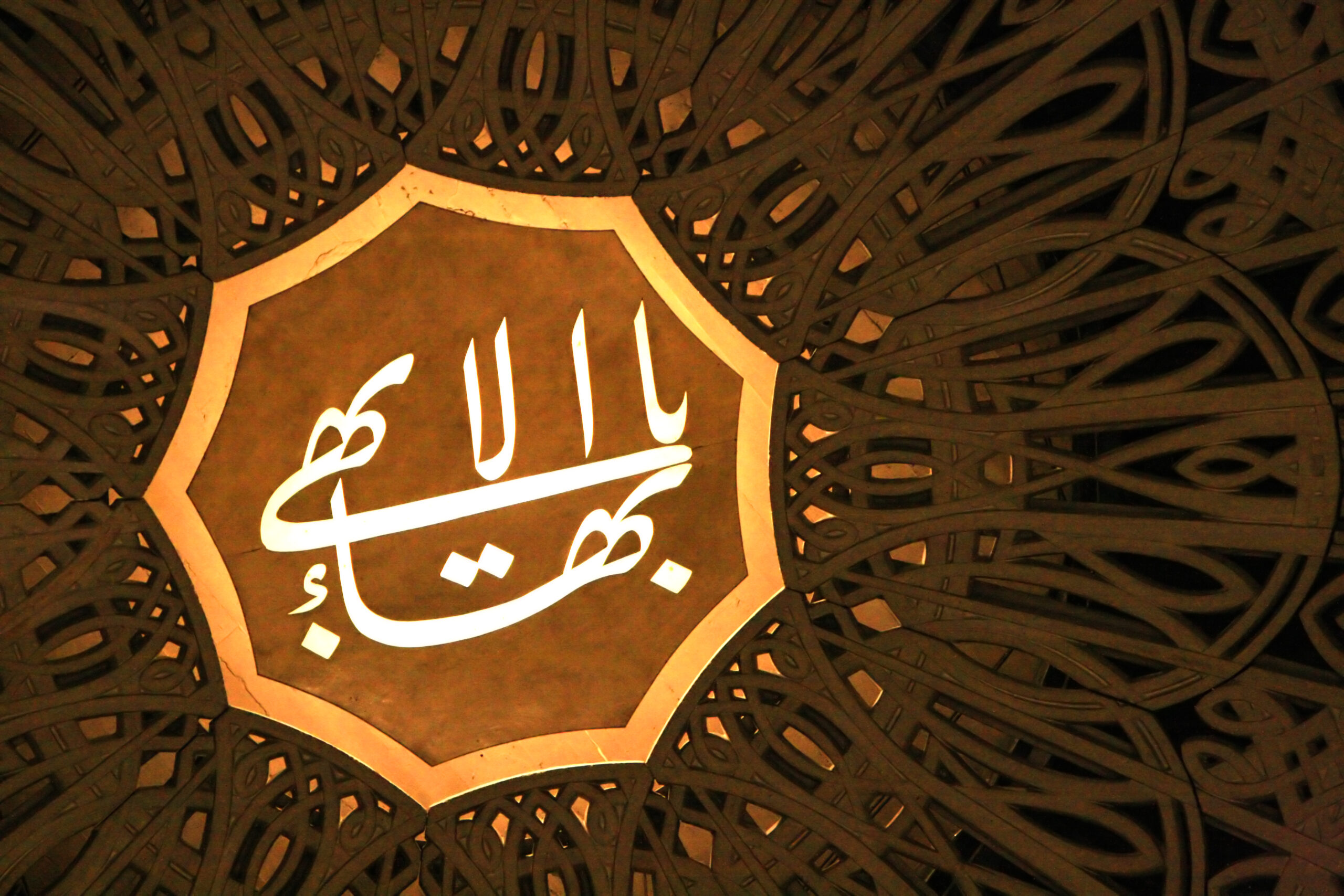
The Bahá’ Faith is a relatively new and fast expanding international religion, with over six million adherents in over 200 countries and territories worldwide. Its teachings revolve around the concept of a single God who has gradually revealed His will to humanity via a sequence of prophets like as Abraham, Moses, Buddha, Jesus, Muhammad, and others. According to Bahá’s, the most recent of these prophets is Bahá’u’lláh, who founded the Bahá’ Faith in 19th century Persia. The Bahá’ Faith is noted for emphasizing unity, variety, and humanity’s oneness, and it has been actively involved in numerous social, economic, and educational development programs across the world. This article will look at some interesting facts about the Bahá’ Faith that offer insight on its history, beliefs, and customs.
The Bahá’í Faith was founded by Bahá’u’lláh, a prophet and messenger of God, in the mid-19th century in Persia (modern-day Iran). Bahá’u’lláh’s teachings are considered by Bahá’ís to be the latest stage in the ongoing process of divine revelation, which began with Adam and has continued through the prophets and messengers of God in every age.
The word “Bahá’í” means “follower of Bahá’u’lláh.” Bahá’ís consider themselves to be members of a worldwide spiritual family united by a common belief in the oneness of God, the oneness of religion, and the oneness of humanity.
The Bahá’í Faith is the youngest of the world’s independent religions. Its rapid growth over the past century has made it one of the most widespread religions in the world, with millions of followers in virtually every country.
The Bahá’í Faith emphasizes the oneness of humanity and the importance of unity and cooperation among all peoples and nations. Bahá’ís believe that the world’s problems, including war, poverty, and injustice, can only be solved through a collective effort by all peoples and nations.
The Bahá’í Faith teaches that there is one God who has revealed himself through a series of messengers, including Abraham, Moses, Buddha, Jesus, Muhammad, and Bahá’u’lláh. Bahá’ís believe that these messengers brought teachings that were appropriate for their time and place, but that the fundamental message of all religions is the same.
Bahá’u’lláh taught that all religions come from the same source and that they are all valid and true. Bahá’ís believe that the different religions of the world are like different flowers in a garden, each adding to the beauty and diversity of the whole.
Bahá’u’lláh’s teachings emphasize the need for spiritual and moral transformation as well as social and economic development. Bahá’ís believe that spiritual and material progress are intertwined, and that true prosperity can only be achieved through a balance between the two.
Bahá’u’lláh taught that women and men are equal in the eyes of God and should have equal rights and opportunities. Bahá’ís believe that gender equality is essential for the progress of society and that it is the responsibility of both men and women to work towards this goal.
The Bahá’í calendar is based on the solar year and has 19 months of 19 days each, with an extra period of 4 or 5 days to make up for the difference with the Gregorian calendar. The names of the months are based on attributes of God, such as “splendour,” “light,” and “justice.”
Bahá’ís fast for 19 days each year, abstaining from food and drink from sunrise to sunset. This period of fasting is seen as a time of spiritual renewal and reflection.
Bahá’ís do not have a clergy, but instead have elected institutions at the local, national, and international levels to govern the affairs of the community. These institutions are responsible for maintaining the spiritual and material well-being of the community and for promoting the principles of the Bahá’í Faith.
Bahá’í houses of worship, called Mashriqu’l-Adhkar, serve as the center of community life and worship. They are open to people of all religions and serve as a symbol of the unity of humanity.
The first Bahá’í house of worship was built in Ashgabat, Turkmenistan, in the early 20th century. Today, there are Bahá’í houses of worship in several countries around the world, including India, Uganda, Australia, Germany, and the United States.
Bahá’ís have a strong tradition of consultation, which is seen as a means of achieving unity and consensus within the community. This process of consultation is seen as a vital tool for decision-making and problem-solving at all levels of society.
Bahá’u’lláh taught that education is a fundamental right of every individual and that it is the responsibility of society to provide education for all. Bahá’ís have been involved in a number of educational initiatives around the world, including the establishment of schools, literacy programs, and teacher training programs.
Bahá’u’lláh taught that work is a form of worship and that all forms of work, whether intellectual or physical, are valued and important. Bahá’ís are encouraged to engage in meaningful work and to contribute to the well-being of society through their work.
Bahá’ís believe that the family is the basic unit of society and that the well-being of the family is essential for the well-being of society as a whole. Bahá’í teachings emphasize the importance of strong and healthy family relationships, including the equality of men and women within the family.
Bahá’u’lláh taught that prejudice of all kinds, including racism, sexism, and nationalism, is a form of spiritual disease that must be overcome in order for humanity to progress. Bahá’ís are encouraged to work towards the elimination of prejudice in all its forms.
The Bahá’í Faith has been persecuted in many countries throughout its history, including Iran, where it originated. Bahá’ís have been subjected to imprisonment, torture, and execution for their beliefs, and continue to face persecution in some countries today.
Bahá’ís believe that the power of prayer is essential for personal and social transformation. Bahá’ís pray daily and are encouraged to engage in devotional gatherings with others.
Bahá’ís have a strong tradition of social and economic development, and have been involved in a number of initiatives to promote these goals around the world. These initiatives include the promotion of sustainable agriculture, the development of small businesses, and the provision of health and education services in disadvantaged communities.
Bahá’ís have a unique administrative structure, which is based on the principles of consultation and collective decision-making. This structure is designed to promote unity, harmony, and justice within the community.
Bahá’u’lláh’s teachings emphasize the importance of service to others and the responsibility of every individual to work for the betterment of society. Bahá’ís are encouraged to engage in acts of service in their communities and to contribute to the well-being of others in any way they can.
Bahá’ís believe that the purpose of life is to know and worship God, and to contribute to the betterment of society. Bahá’u’lláh taught that the ultimate goal of human existence is to achieve spiritual and moral excellence and to prepare for the next life.
Bahá’ís believe that the writings of Bahá’u’lláh and the Bab contain the guidance and teachings necessary for the spiritual and material progress of humanity. These writings are seen as a source of inspiration and guidance for Bahá’ís and for all people who seek the truth.
The Bahá’í Faith has no clergy or priesthood, and all individuals are encouraged to independently investigate the teachings of the Faith and to form their own understanding of them.
Bahá’ís believe that the equality of men and women is essential for the progress of society. Bahá’í teachings emphasize the equal rights and opportunities of men and women in all areas of life, including education, work, and participation in social and political activities.
The Bahá’í calendar consists of 19 months of 19 days each, with an additional period of four or five days to adjust to the solar year. Each month is named after a specific attribute of God, and the calendar is used for both spiritual and administrative purposes within the Bahá’í community.
Bahá’u’lláh taught that the world’s religions are all part of a single, progressive revelation from God, and that each religion has contributed to the spiritual and moral progress of humanity. Bahá’ís believe that Bahá’u’lláh is the latest in a long line of prophets and messengers sent by God to guide humanity.
The Bahá’í Faith has a vision of a united and peaceful world, in which all people live in harmony and work towards the common good. Bahá’ís believe that this vision can be achieved through the establishment of a world federation of nations, the elimination of all forms of prejudice, and the promotion of spiritual and moral values in all areas of life.









